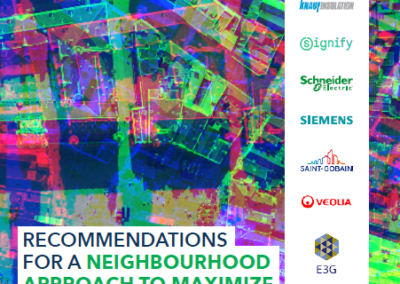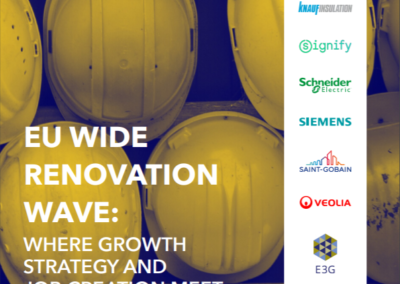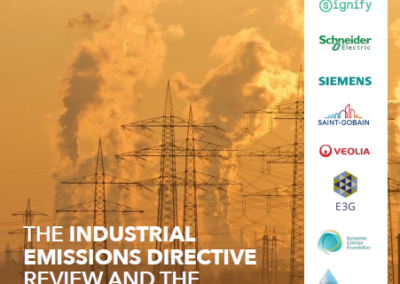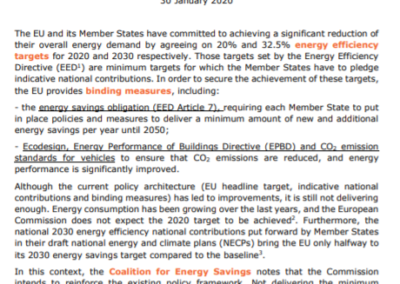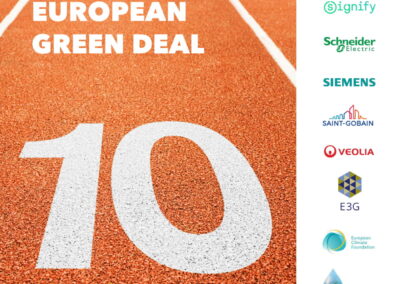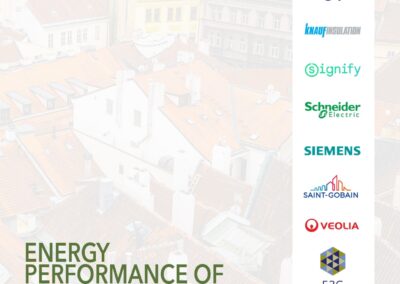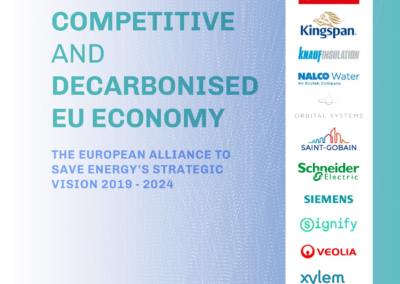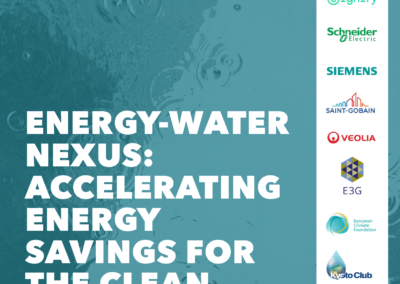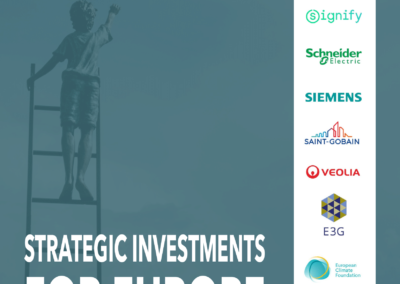Papers
Recommendations for a neighbourhood approach to maximize energy efficiency in renovation and energy planification
This position paper calls on the European Commission to integrate the notion of neighbourhood approach in the EU building and energy efficiency policy framework, in the national programmes for buildings renovations and in the upcoming Renovation Wave strategy. The current energy efficiency legislative framework in buildings already refers to the...
read moreEU wide Renovation Wave: where growth strategy and job creation meet climate goals and social inclusiveness
Unlocking the potential for energy efficiency and carbon footprint reduction that lies in the EU buildings stock is a top priority for the European Alliance to Save Energy. As businesses and investors having energy efficiency and energy demand reduction at the heart of our activities, we look forward to seeing Europe’s global climate...
read moreThe Industrial Emissions Directive review and the European Green Deal: fully realise water and energy savings in industry and related emission reduction
We welcome the review of the Industrial Emissions Directive (IED). While we believe the Directive has been responsible for solid progress against identified air and water pollutants, and the BREF process has contributed to identifying Best Available Techniques, in its current form the Directive is not able to contribute toward EU ambitions for...
read moreEU-ASE contributes to Coalition’s Energy Efficiency package for the European Green Deal
The EU and its Member States have committed to achieving a significant reduction of their overall energy demand by agreeing on 20% and 32.5% energy efficiency targets for 2020 and 2030 respectively. Those targets set by the Energy Efficiency Directive (EED) are minimum targets for which the Member States have to pledge indicative national...
read more10 priorities for transformative policies under the European Green Deal
The European Green Deal Communication acknowledges that in the effort to reduce GHG emissions and achieve climate neutrality by 2050, energy efficiency must be prioritised. At EUASE, we have set out 10 priorities to make sure that the policies under the EGD fully apply the Energy Efficiency First principle. On December 11, the European Commission...
read moreEPBD – Recommendations for implementation
The Clean Energy for all Europeans policy package led to the revision of several key pieces of legislation related to the renovation of buildings. Most notable was the revision of the EU Energy Performance of Buildings Directive (EPBD) that now sets a clear direction for the full decarbonisation of the European building stock by 2050. The...
read moreEnergy Efficiency for a competitive and decarbonised EU economy
The European Alliance to Save Energy (EU-ASE) is known to be a leading business voice in a growing, diverse and increasingly well-organised energy efficiency community in Brussels. Since our foundation in 2010, we have helped put energy efficiency high on the agenda of EU decision makers. Together with other Brussels-based and national...
read moreEnergy-water nexus: accelerating energy savings for the clean energy transition
The link between energy and water consumption across sectors has been so far widely neglected, despite the economic and environmental benefits it can bring to European citizens and businesses. Water and energy are interdependent and should be considered in all EU policies with the goals to make Europe’s waters more resilient, affordable and...
read moreStrategic investments for Europe – Evidence from cost-effective energy efficiency stories
We recognize in both public and private sector an urgent need to move from policy to practice and to replicate and scale sustainable technologies and practices. Doing so will unlock the multiple economic, environmental and social benefits that are needed to create a sustainable development pathway in our 21st century. This is especially true in...
read more
